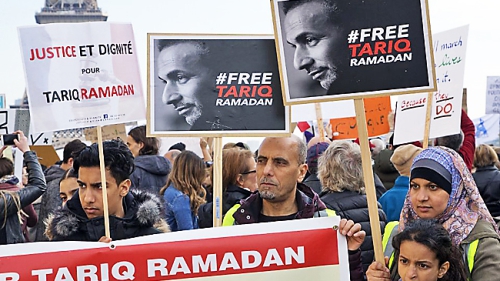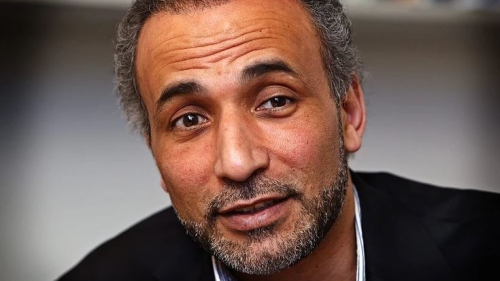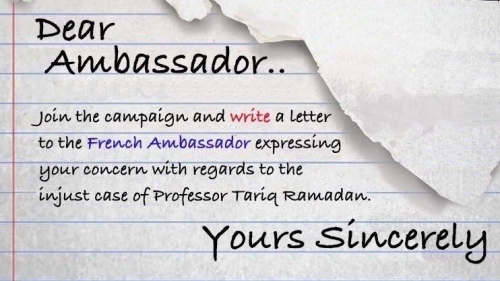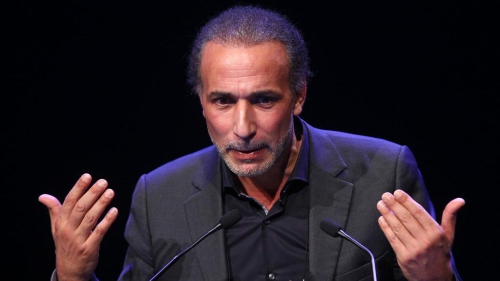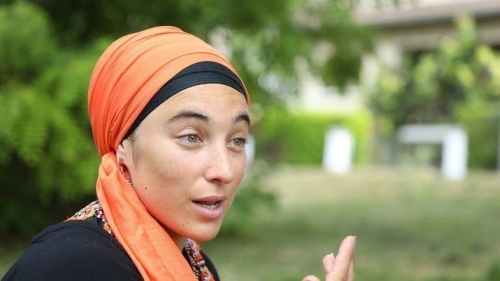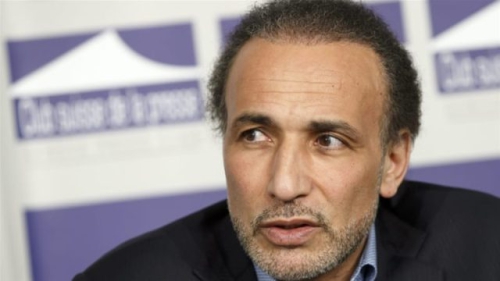The Future of Islam: Possible Paths

"As Muslims in the west and in the name of faithfulness to a universal message, we need to find a solution to the multiple crises that we are in," argues Tariq Ramadan during a public debate entitled 'The Future of Islam: Possible Paths,' which featured the prominent Swiss author of Egyptian origin, one of today's most important innovators of the 21st century according to Time magazine, and dubbed by others as the "Muslim Martin Luther." What are these crises? Is it that Muslims are struggling to juggle the responsibility of defending Islam whilst deadly acts of terrorism are carried out in the name of this faith? Is it the complexity of leading an Islamic lifestyle in a secular society? More importantly, how should western Muslims deal with such crises and what are the solutions. Joining Dr Ramadan in discussing the future of Islam at the London School of Economics was writer, broadcaster and critic Ziauddin Sardar, who has authored a number of Islamic and cultural books and often contributes to British newspaper, the Observer.
The discussion explores the notion of Ijtihad, "the reading of the scriptural sources, when the text is not obvious, where there is latitude for interpretation or when the text has not been backed by prophetic tradition." As part of the solution to our "multiple crises," firstly, Ramadan addresses the issue of interpretation of scriptural sources in that what is necessary nowadays is a better interpretation of Islamic terminology. He states, "we now have people accepting that Shariaa, the set of laws, or penal code, is not something that was understood at the beginning of Islamic Sciences," thus part of the problem is that we do not know the roots of our tradition and terminology and this is of major importance for the Muslims' escape from the current dilemma.
Asserting the importance of context, Ramadan begins by saying, "We were told by the prophet of Islam himself that it wasn't going to be the end with him, that every century we would have a group of people helping the Muslim community to understand the new reading of these scriptural sources." Highlighting a key point here, Ramadan argues that a true understanding of environment to establish a renewal in the reading of the text is what is truly important. Sardar further emphasised this idea of re-understanding the scriptures according to the situation as he states, "If we believe that the Quran is an eternal text then I can only have an interpretive relationship with it that changes when a new generation comes along. Most Muslims do not have a relationship with their texts and leave it to a selected ulamaa to have this relationship. I believe that it needs to be re-understood every epoch that we need to re-think this relationship with the texts."
Ramadan develops his argument underlining the need for scholars of the context rather than Muslim communities looking to and relying only on scholars of the text. Like many others within Muslim communities, Ramadan underlines the danger of the issuance of fatawa, that is religious rulings by scholars, (in this case, scholars of the text), who do not in Ramadan's words, "understand the complexity of the context." He adds that scholars will refer to their sources of the Quran, the Sunnah (the Prophetic traditions), conferences and reasoning by analogy however; context is not taken into consideration. By uniting the two variations of scholars, explicitly the scholars of text and the scholars of context, there lies the solution, and this unity somewhat represents the aim of intra-community dialogue and that "is the only way forward."
Sardar contributes to this argument in his claim that it is somewhat insulting to the ability of learning for ordinary Muslims that the "idea of ijtihad can only be done by selected individuals." Sardar explores the idea of Islam following a pattern of reduction. He argues that what was introduced by the Prophet of Islam, namely the concept of collective consensus, thus conventionally democratic, has now been reduced to the consensus of scholars. Furthermore, Sardar criticises what he calls the "mechanical fashion" of learning that is undertaken by many religious scholars and this itself has only come about through the reduction of knowledge. To make this point clearer, Sardar refers to history, arguing, "Conventionally, the idea of knowledge was a broad category that meant all knowledge, but the concept now has been reduced to mean religious knowledge." He adds that "mind does not enter the concept at all", frankly stating that what these scholars have learnt is the result of a "mechanical exercise." Contemporary debates in both Islamic and non-Islamic communities have focused on this strongly criticised form of Islamic education. Sardar demonstrates his viewpoint by relating an experience he had in Cairo when he had inadvertently taken part in a meeting that included a blind scholar and a number of students. The scholar was questioned on a specific matter and answered the query by telling one of the students, "to get up, walk down and go up to the third floor, find the third book shelf, pull out the fifth book, open to page 152, read paragraph three and lo and behold, there was the answer to the question that was asked."
What about the Muslims of the west? What are the responsibilities of this vast and internally diverse group? Ramadan reasons that the diversity itself that consists of so many trends needs to unite, accept the range and take part in respectable debate. Modern Islamic scholars often refer to this necessity of Islamic communities to respect not only the viewpoints and arguments of the other but also of each other within this heterogeneous group. However, this argument more often than not paradoxically takes place within an environment of denouncement and disrepute from those who hold conflicting viewpoints. Ramadan calls for the requisite of criticism towards those actions that are fulfilled in the name of Islam however contradict Islamic principles, most notably discrimination against women with domestic violence and forced marriages as examples. In addition, as European Muslims, "because we live in free society we are able to promote self-criticism," for example addressing the issue of racism within Muslim communities and particularly "what is close to slavery in petromonarchies."
Ramadan concludes his discussion referring to the "silent revolution of the Muslim mind, of remaining faithful to values but moving on and dealing with new challenges." The responsibility of western Muslims is not only to be part of the dialogue process between the west and Islam but also to take part in "an interactive monologue," that is "to be able to speak to your own self, to listen, to be critical and ask questions (about different voices)." Ramadan emphasises a key point that is the responsibility as western Muslims to build bridges between the two civilizations, for example during the Danish cartoon crisis that depicted the prophet Mohammed as a terrorist, there was "the promoting of freedom of speech, "on one side and the "promoting of sacred religious dogma" on the other without respect from either side. There is a an urgency in the tackling of new challenges for the modern Muslim and specifically the western Muslim as the latter upholds a responsibility in maintaining intrinsic values of religion whilst transforming with time and situation. This as Ramadan labels it, is "evolution in the name of faith and not against faith," and this is the key for the future of Islam.
Karima Sbitri writes for the Arab daily newspaper Asharq Al-Awsat based in UK.
Related Suggestions
If you really believe that Muhammed was sent to complete the teachings of all of the prophets before him, why do you ignore all of those other prophets and instead focus on people who lived after Muhammed? Why do we hear about Aishah instead of Mary? Why do we hear about Abu Bakr instead of Moses? We hear about them because most Muslims believe that Islam is only about Muhammed and his life.
They have taken pre-Islamic cultural traditions from the Middle East, and put it in place of religion. Instead of striving for peace and knowledge, these people focus on what their wives are wearing, and memorizing the Quran instead of trying to understand it, and live it. All that they know is hate. There is no spirituality in their life, no introspection. They rage about "the West" and talk badly about other religions, but they aren't even smart enough to know that they are hypocrites.
Why do these so called Muslims feel that they have the right to denigrate Christianity? I have met many Christians who live Islam better than a lot of Muslims. Throughout the Quran, we hear the term "believers". It is these "believers" who have been promised paradise, not just followers of Muhammed. Furthermore, many Muslims have fallen into all of the same traps as Christianity by putting Muhammed TOO high. The Quran tells us that we should revere all prophets equally - yet these "Muslims" put Muhammed, his wives, his children and his companions higher than previous prophets. They are willing to accept only the teachings of people with similar ethnic/cultural backgrounds - which is contrary to the Quran. They have strayed from the straight path.
what bother Tariq in islam bcaz its not suitable to this modern age?
i know , he wantts from us to throw away sharia and become secularists , in that way only we can be modern ppl . this is nonsences ..
the time shud change and suitable to islam . not islam have to change .
see to the chiristianss, they changed thier religion to be suitable to every generation, in that way they changed bible, and thay allowed every thing fotbiden is christianty ..
Tariq ramadan is not a Fiqh Scholer ..he is a thinker
we must not allow artists and writers and thinkers and poets to talk about islam .
Actually, Ramadhan's argument is not original at all! It is exactly what Ibn Alqayyam Aljawziyya said few centries ago. I support the idea with a condition that the rules of Ijtihad are followed. Any modern scholar worthy of the name scholar, will agree to the wealth of knowledge left by the our scholars when Islam was at it highest. Following the principles of Fiqh, like the sources of Shari'ah, like Ijma', Qyas, ans especially in the Maliki school the "Sadd Addhari'ah", and "Maquasid Al-Sharia'h", I am sure, we will bring back the Islamic Ummah to its rightfull position in the world.
Fi Amaani Allah,
Omar B.
al SALAM alaykum wa rahmat Allah!
So then what were the people in the past compelled by? Versus what are they compelled by today? And why might they appear to be weaker? Or what does there seem to be less reliance upon?
Dr. Ramadan is right in saying that Western Muslims need to match context with the rulings of Islam, and to help build bridges between the West and the Muslim world.
The other questions that we Muslims must ask ourselves is do we practically worship Allah, the eternal God of the worlds or do we worship the 8th-12th Sharia and its scholars, the Salafis or the Suffis?
Coming from a Maliki background, I had to answer this question back in 1987 and found that in my country my friends were astonished that I perform my daily prayers since then at times according to Imaam Jaafar Sadiq instructions and at other times according to what was reported to us by the other three Imaams Shafii, Abu Hanifa and Ahmad bnu Hanbal. I have a strong Suffi tradition but I made sure I am not tied to one Zawia so I have frequented Zawia Shadhiliyya, Tijaniyya, Naqshabandiyya and Qadiriyya & spent some week ends with Jamaat Tabligh and performed Qiyam allayl with Jamaat Al-Adl wal Ihsan & Alikhwan Almuslimoon; prayed many times in masaajid Shia Ithna Ashria because I don't want to fall into the trap of small shirk & sectarian dogma by which I could be tied to the teaching of one school or one leader.
BTW: Could you please tell me where in your site could I correct this mistake: "Al-Azhar university is the oldest university in the Islamic World" ?. Who said? It is totally wrong because Al-Azhar university is built in 971 CE. Actually, the oldest university in the world is in Fez, Morocco not in Cairo, Egypt. It is Al Qarawiyin university built in 859 CE by Fatima Alfihria.
I really love the quote of the Surah from the pop up box from Islamicity when you want to reply, it goes from the translation of the holy Book:
Quran 3:114
They believe in God and the Last Day; they enjoin what is right, and forbid what is wrong; and they hasten (in emulation) in (all) good works: They are in the ranks of the righteous.
This article is very timely. Many of us muslims in the west wish for only peace. As a muslimah, I have to endure hard stares and sometimes just outright hostility as I make my way in the world wearing Hijab. We need to have a concensus, it is difficult to tell secular persons that Islam is really peaceful when harm is being done in the name of Islam. Sure, the other guys do the same thing, but there is no profit or gain for using that to excuse what is done and being quoted in the name of Islam, Insha'allah, God knows all and will reward those who do evil with what he deems best. Mainstream Islan needs to set those who seek to do harm aside as Apostate, they twist and turn the name of Islam into something it is not. I am only a woman but have born 6 sons and 2 daughter and do not wish them to be ostracized for the actions of others.
Peace to all.
I end off by saying that mainly, we have seen evidences of extreme measures in the west that progressive muslims have taken and the measures in the Islamic world by extreme scholars which both have led to problematic events. I think its important for Tariq Ramadan to really define this reinterpretation, what is its intent and who's qualified to do it. Because clearly, we have seen both measures take place. We all seek that common ground and Insha'Allah we will find that middle ground of which Islam relishes itself upon. Let us all invite the critique of these new measures, for it is this constructive criticism which modify our state of Ummah to be an even better Ummah.
-Faizzan
Vanderbilt University






